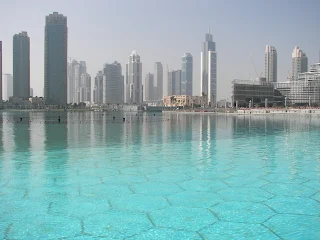Dubai’s real estate market is gradually stabilising and should begin to gain traction next year and thereafter on the back of improving domestic economic and financial conditions, according to a Credit Suisse study.
Dubai's troubles with its slumping property market and cash-strapped state-owned firms mean a longer road back to health, which is holding back overall GDP growth in 2010. Key sectors such as construction and real estate have in fact continued to undergo protracted adjustments. Demand for purchasing new homes remains weak as credit conditions are tight and rental prices are still falling, the bank said in its report ‘United Arab Emirates: 2011, the year of recovery’ as part of its latest Emerging Markets Quarterly, Q1, 2011.
That said, the real estate market is gradually stabilising and should begin to gain traction in 2011-2012 thanks to improving domestic economic and financial conditions. Meanwhile, exports have rebounded, providing a much-needed lift to growth this year, the report added.
Headway on debt restructuring and higher oil prices have been a boon for confidence. Dubai World struck a debt-restructuring deal with its creditors in September. The accord has helped to ease concerns over Dubai's debt crisis, boosting investor confidence, it noted.
The eventual resolution of the Dubai World saga should lead to greater improvements in banking and financial conditions by the end of 2010 and into 2011. As domestic conditions further stabilise and strengthen, we expect the economy to steadily build momentum. Indeed, activity in the private sector, which has lagged behind this year, should see greater gains in 2011 as deleveraging by businesses and households winds down, the report noted.
Additionally, it said strong public spending and investment, mainly financed by the oil-rich emirate of Abu Dhabi, would also continue to drive non-oil economic activity.
Abu Dhabi has launched its own industrial development with a port complex, the landmark Khalifa Industrial Zone Abu Dhabi (Kizad), which is a step forward in its longer-term objective of economic diversification. As such, we expect strengthening domestic conditions in 2011 to take up slack from a still soft external environment, driving an acceleration in non-oil GDP growth to 4.8 per cent from 2.4 per cent in 2010, it said.
The recovery in the UAE economy has proceeded slowly in 2010, with GDP growth rising just 2.3 per cent on the year, the report said while adding: “We see the UAE economy steadily building momentum in 2011, with GDP growth rising to 4.7 per cent.”
After a modest, albeit positive, contribution to overall economic growth in 2010, we expect growth in the oil sector to gradually pick up over the course of 2011, the report also noted.
Crude oil production has held relatively steady at around 2.3mn barrels per day during the first ten months of 2010, up 1.6% yoy. OPEC has kept a firm grip on production levels to support prices, but we expect output to rise as global demand again picks up by the end of next year. This underpins our projection for oil GDP to expand 4.5 per cent in 2011 after rising 2 per cent in 2010, it added.
Further, it said, the combination of rebounding oil and non-oil exports as well as relatively moderate import growth should boost external balances in 2010, in our view, and we expect additional gains in 2011.Strengthening external demand and higher oil prices have reignited export growth, which should raise the foreign trade surplus to 28.3 per cent of GDP in 2010. Accordingly, we expect the current account surplus to rise to 11.8 per cent of GDP this year, the report said.
The bank also expects UAE’s fiscal performance to continue to improve in 2011, as revenue collection benefits from higher oil prices and output and strengthening domestic economic activity.
We estimate that the fiscal balance turned positive in 2010, moving to a surplus of 2.2 per cent of GDP. We project a rise in the fiscal surplus to 4.4 per cent of GDP in 2011 under our baseline oil price assumption of $85/bbl. We expect government revenues to grow 16 per cent yoy in 2011, powered by both oil and non-oil revenues, the study said.
Further, it said although credit remains tight, the eventual resolution of the Dubai World saga should lead to greater improvements in lending conditions by 2011.
Private sector credit has continued to decline on a year-on-year basis, falling 2.4 per cent in August, but the pace of decline has eased in the past two months. Credit to the private sector certainly remains tight as banks have had to tighten lending criteria and boost provisions for non-performing loans (NPLs) to cover their exposure to cash-strapped local and regional firms like Dubai World. In addition, rising provisions for NPLs have continued to hold back lending growth. Nevertheless, the outlook has brightened thanks to the recent progress on Dubai World's debt restructuring. We think credit growth should accelerate to 9.4 per cent in 2011, the report said.
Consumer prices will likely continue to accelerate on a year-on-year basis through the end of 2010 and into 2011 in the UAE, as the pace of the recovery picks up, but inflation should remain moderate, the report added, while maintaining that there is no significant risk to the dirham's dollar peg at present.
It said although housing prices have already undergone their worst declines, soft demand and new supplies of both commercial office space and residential housing are contributing to continued weakness. We see inflation rising 4.5 per cent on an average annual basis in 2011 after edging up just 1 per cent on average in 2010





